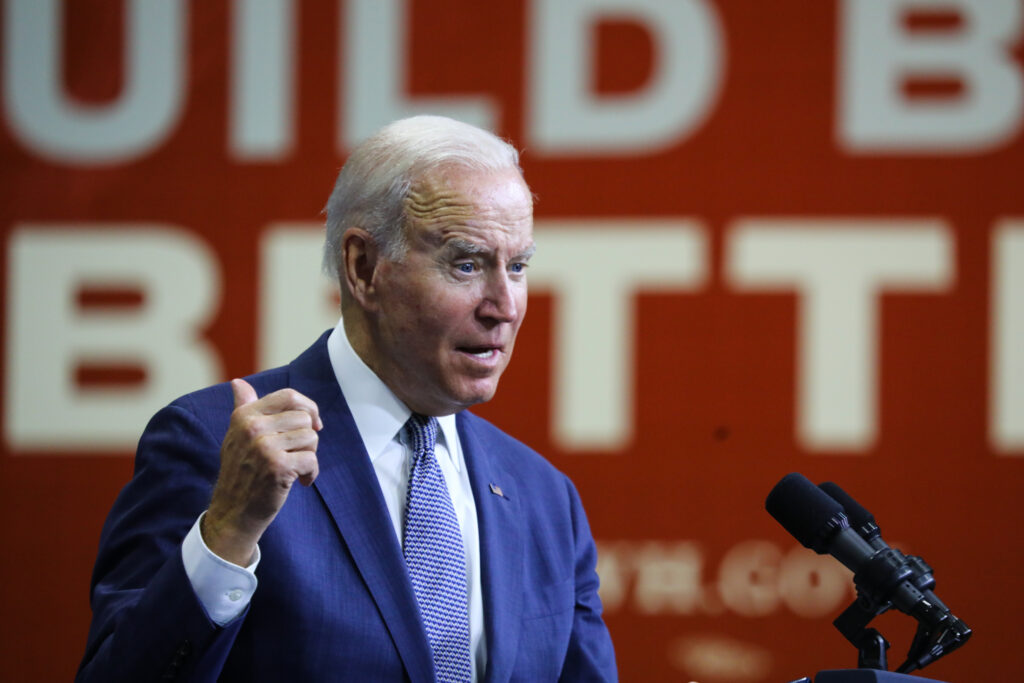State lawmakers could do more to lower federal health care spending than the presidential candidate elected on November 8, if six state legislatures pass bills calling for a convention of states to pass a balanced budget amendment.
Article V of the U.S. Constitution authorizes states to call a convention with the approval of two-thirds of all states, or 34 states. An amendment proposed by the convention would become law only if three-fourths of all states, or 38 states, ratify it.
Twenty-eight state legislatures have approved resolutions calling for a convention for the purpose of proposing a balanced budget amendment (BBA) prohibiting Congress from authorizing spending in excess of expected federal revenues for any given year, except during emergencies.
Congress increased spending under the Affordable Care Act (ACA) by subsidizing the health insurance policies, which ACA mandated people purchase, of households earning up to 400 percent of the federal poverty level (FPL), or $47,520 for a one-person household in 2016. The law also promises federal taxes will cover 90–100 percent of the cost of expanding state Medicaid programs to extend government-sponsored health insurance to newly eligible, able-bodied enrollees earning up to 138 percent of FPL, which is $16,242 in 2016.
Variety of Convention Proposals
Ilya Shapiro, a senior fellow in constitutional studies at the Cato Institute and editor-in-chief of Cato Supreme Court Review, says current proposals to amend the Constitution under Article V differ widely, with some limiting the federal government’s power and one proposing to restrict civil liberties.
“There have been a plethora of constitutional amendments proposed in recent years, mostly to check the federal government in some way, such as allowing states to strike down federal laws or requiring the federal government to have a balanced budget,” Shapiro said. “On the Left, there’s also, of course, a proposal to amend the First Amendment to restrict political speech.”
The current slate of state resolutions includes some differences in their details, and thus courts may determine it does not satisfy the requirements of Article V, Shapiro says.
“The Balanced Budget Amendment is furthest along of all the various convention calls, but the devil is in the details,” Shapiro said. “If various states have proposed disparate kinds of BBAs, do they all count together towards the two-thirds requirement? It’s really unclear.”
Limited Scope … and Scoop
Congress could try to ‘scoop’ Article V proponents by proposing its own BBA for ratification by the states, Shapiro says.
“Realistically, if any of these efforts approaches the two-thirds threshold, Congress will almost certainly ‘get ahead’ and propose its own amendment by a two-thirds vote,” Shapiro said. “This is how every successful constitutional amendment has operated and why we’ve never had an Article V convention: Congress sees the writing on the wall and wants to better shape the amendment that gets sent to the states for ratification.”
Shapiro says there is a growing number of state lawmakers likely to support a convention limited to proposing a common BBA.
“One effort I’m involved in, the Compact for America BBA, has formed an interstate compact to push for a strictly limited convention to vote on a specifically worded BBA,” Shapiro said. “Four states are now party to this compact, and more will likely join each legislative season.”
Health Care Policy Implications
Josh Blackman, associate professor of law at the South Texas College of Law and author of Unraveled: Obamacare, Religious Liberty, & Executive Power (2016) and Unprecedented: The Constitutional Challenge to Obamacare (2013), says a constitutional amendment won’t make a difference if the Supreme Court continues to disregard the Constitution.
“Frankly, I’m not too optimistic about an Article V convention,” Blackman said. “The Supreme Court ignores the Constitution we have. I’m sure they’ll do the same to whatever alterations we make. Pessimistic, I know.”
Shapiro says a BBA would restrict the federal government from spending too much money in a number of issue areas, including health care.
“It depends how much the federal government spends on health care going forward and what the slow-motion implosion of Obamacare will mean to America’s fiscal situation,” Shapiro said. “Federal health care spending would be affected by a BBA as much or little as any other aspect of the budget.”
Other amendments forged at an Article V convention could likewise limit federal health care spending, Shapiro says.
“Some of the other proposed constitutional amendments could operate to reduce the federal government’s regulatory authority and send both power and money back to the states,” Shapiro said.
Michael T. Hamilton ([email protected]) is managing editor of Health Care News, author of the weekly Consumer Power Report, and host of The Heartland Institute’s Health Care News Podcast.
Internet Info:
Rob Natelson, “A Brief Assessment of the Proposed Convention Rules Adopted by the Assembly of State Legislatures,” The Heartland Institute, August 17, 2016.
Image via Thinkstock
This article was updated on October 20, 2016.





